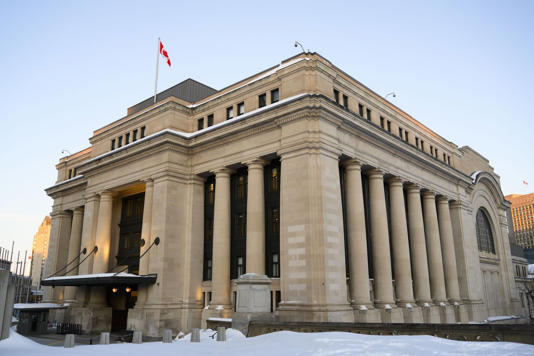
OTTAWA — Canada’s upper house has adopted a new set of rules that the Liberal government says will further entrench its independence, as the dominos from Prime Minister Justin Trudeau’s Senate reforms continue to fall.
The large majority of senators voted in favour of the sweeping changes earlier this month.
But the Conservatives — whose numbers have dwindled down to just 13 seats — say the government is trying to weaken their position in the Senate and hamstring future Tory governments.
The new rule changes give more power to each of the groups recognized by Senate modernization legislation that Parliament passed in 2022.
Rather than mimicking the dual roles of government and Opposition in the House of Commons, the Senate now gives additional groups similar powers and additional speaking time during debates.
The leaders of recognized groups, three of which now outnumber the Tories, can now defer votes on legislation and sit in on committees to question witnesses.
It means less time for the official Opposition to give speeches and pose questions.
“In Westminster parliament, the government’s role is to propose things. The Opposition’s role is to challenge the government,” said Conservative Sen. Denise Batters.
Sen. Pierrette Ringuette, a former Liberal MP who was appointed by prime minister Jean Chrétien and now sits in the Independent Senators Group, said nothing has changed for the Tories.
“They have not lost any power,” she said.
They have the same political tools at their disposal, she said — it’s just that other groups now have access to those, too.
Sen. Scott Tannas, who was a Conservative senator and now leads the Canadian Senators Group, said he thinks the rule changes are a necessary evolution.
“There will be multiple groups in the Senate for a long time to come, not just government and Opposition,” he said.
Greater independence from political parties and House of Commons colleagues has led to better alignment and productivity, argued Tannas.
“Since 2015, about 27 per cent of the legislation of the government has been amended by the Senate versus seven per cent in the previous era,” he said.
Tannas added he doesn’t think he’ll use his newfound powers very often.
The leader of the third newer entity, the Progressive Senate Group, said the rule changes will prevent future Conservative governments from reversing course on the reforms that have been reshaping the institution.
And it’s only fair for larger groups to have equal ability to fulfil their duties as senators, said Sen. Pierre Dalphond.
“If there’s a time where (the Opposition) wants to defer a vote, (they) will not hesitate to do it,” he said.
“But if somebody else defers a vote, this is bad? I don’t understand.”
Early in his tenure as Liberal leader, Trudeau kicked Liberal senators out of his caucus.
As prime minister, he instituted a new process to appoint senators. Rather than choosing straight-up partisans, he approves the membership of an independent board and takes their advice on appointees — a process that Tories have argued nonetheless yielded a crop of senators who lean progressive.
Only three senators now hold roles affiliated with government — the main representative, Sen. Marc Gold, who forced a vote on the rule changes, his deputy and a third senator described as a “government liaison.”
In part because former prime minister Stephen Harper left a large number of Senate seats vacant at the end of his tenure, and in part due to the mandatory retirement age for senators, Conservative numbers have dwindled.
Even if the Tories win a federal election and control the House of Commons, it could take a very long time before partisan Conservatives have a majority in the Senate.
And though they could propose their own rule changes, it’s unclear whether the Senate in its modern composition would support that.
There were not many rules the Opposition could agree with the rest of the chamber on.
But after significant debate, most agreed on a few — including that unelected senators, still living down the expense scandals of yore, give themselves a shorter dinner break.
Source: Simon Hopkins, The Canadian Press
